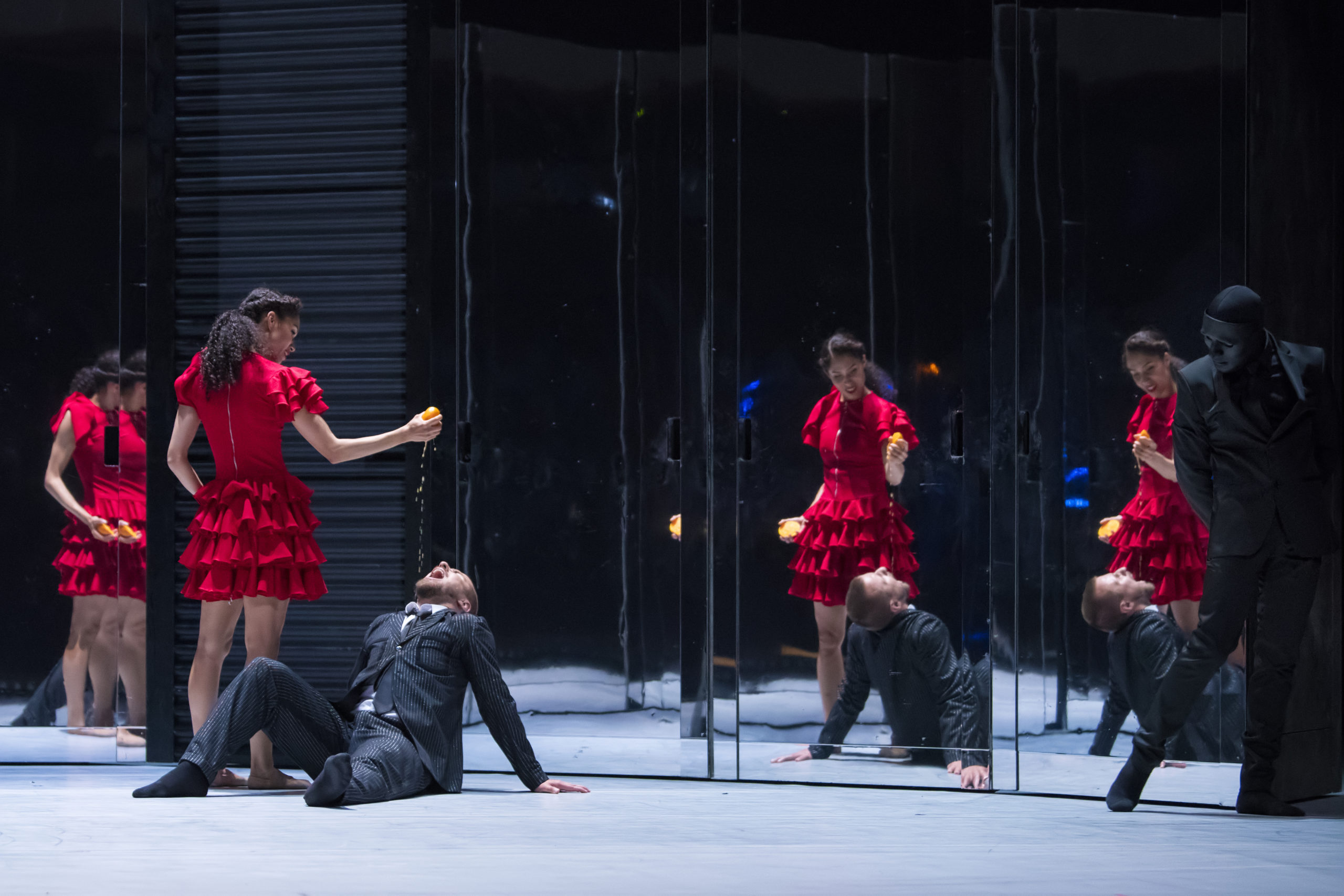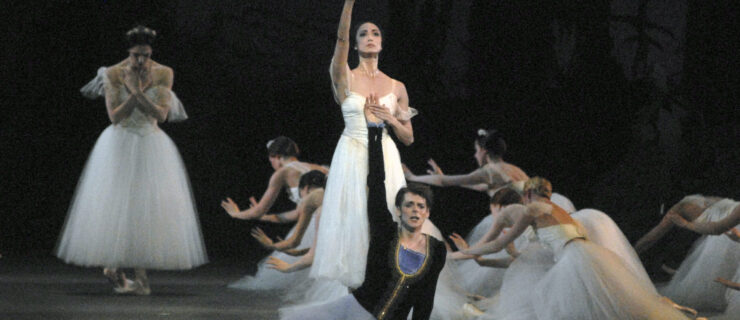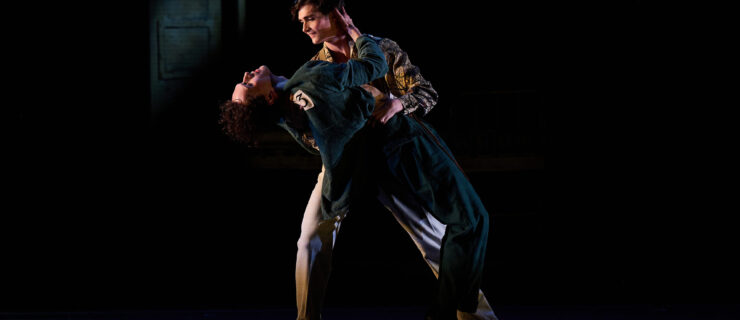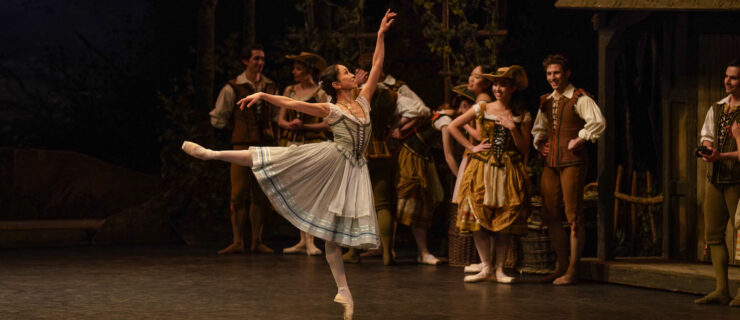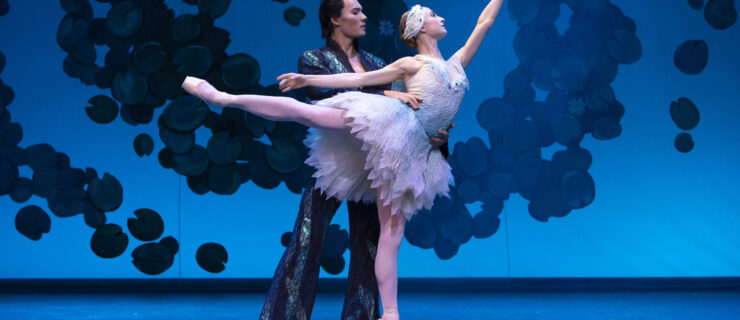A Psychological Framing of “Carmen” Has Its New York City Debut
Fiery red dresses, passionate bullfighters, clicking castanets—Carmen is known for its prominent (albeit stereotypical) display of Spanish culture. Ballet adaptations of Georges Bizet’s famous opera tend to stay true to tragic themes: Carmen, a passionate, free-spirited woman, is killed by Don José, whose jealousy over her relations with other men drives him into a murderous rage.
While still following this plot, Compañía Nacional de Danza’s Carmen, which has its New York City debut at The Joyce Theater April 12–17, does away with exaggerated Spanish tropes. It’s a unique production originally staged in 2015 by Swedish choreographer Johan Inger. The Joyce run will be a homecoming for artistic director Joaquín de Luz, who danced at New York City Ballet for 15 years.
Pointe caught up with de Luz a week before the company packed up for the tour. Here’s what he had to say on everything from Carmen’s over-the-top Spanishness to small stages and censorship in ballet.
How is this Carmen different from earlier productions?
It’s quite unique because it’s by Johan Inger, who is a Swedish guy who has lived in Spain for 10 years. The dramaturg is Spanish, and the composer that filled in the gaps for the music is Spanish. You feel that the identity is a Spanish story, but the costumes are neutral enough that it could happen in any other location. Other productions that you see of Carmen are stereotypical, very over-the-top for me, and I’m Spanish. This one is way more temporal. It’s in a more abstract place.
You became artistic director of Compañía Nacional de Danza in 2019, after two decades dancing in New York and right before COVID-19 hit. What’s it like returning at the helm of a company?
It’s been productive and it’s been crazy. So many challenges. But I think resiliency is what dancers do best. As far as returning to New York, I think I feel the right amount of excitement and the right amount of nervousness. It’s such a big deal, my homecoming and bringing my company. I can’t wait to share with my second home and my family there.
Why bring this particular ballet to New York and to The Joyce?
This production reads really well in smaller venues. I think it’s wonderful to be close to the performance in this particular production. There are so many details—it makes you really immersed in the story. It’s okay to break the fourth wall, if you will, because it’s pretty raw. It requires the dancers to capture the audience. It’s not such a spectacle.
So it’s more emotionally charged up close?
The dramaturg, Gregor Acuña-Pohl, is a master of thinking outside of the box. He introduces the figure of the boy, and we see the story unfold through his eyes. The boy represents everybody’s innocence before we get instilled with systems and morals.
For Carmen, we emphasize her power and her freedom. But the second act takes place inside Don José’s head. You understand what takes him to the boiling point of killing for revenge or passion or jealousy. It kind of dissects the worst of human impulses and our dark sides.
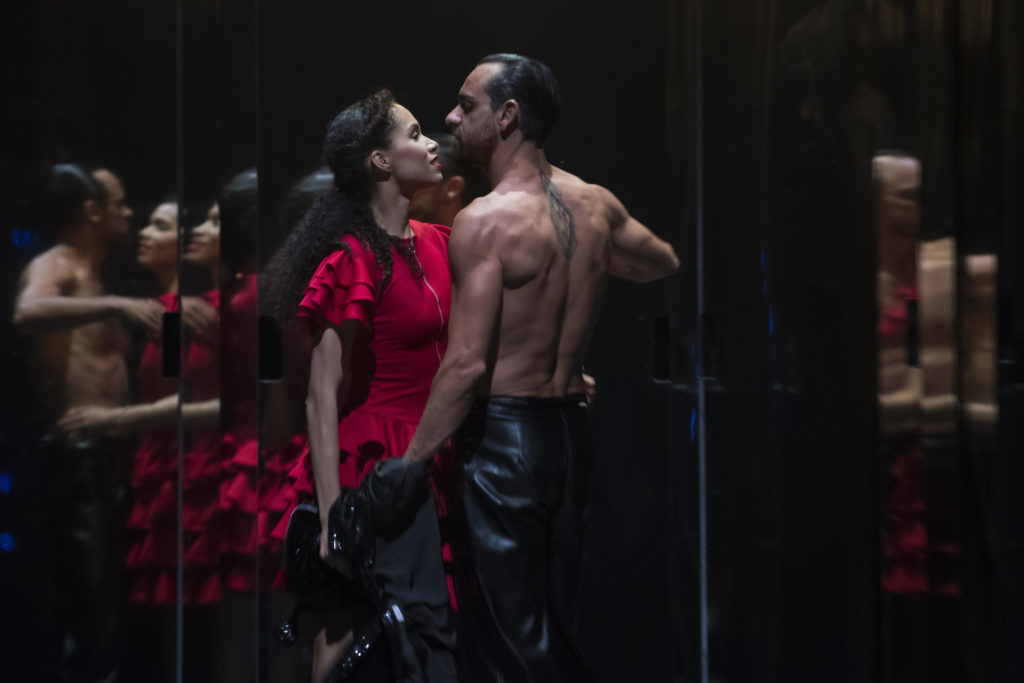
Do you think ballet has the freedom to be more experimental in Europe than in the U.S.?
There’s a bit more of a challenge at the moment, I would think, to choreograph in America. It’s very sensitive. I think choreographers have more of a clean canvas in Europe. They don’t have as many requirements and things to be careful with.
In terms of politics?
I think we are hopefully in the relaxed part of the swing. You can’t expect art to offend you, because you’re going to get offended. I do believe that the arts should be in an ambiguous kind of “offensiveness-free” area. We can’t create an environment where you’re not able to tell a story because it happened in the past.
Maybe it’s important to revisit stories like Carmen, then, to get a little bit deeper?
There’s a very violent act happening. There’s a man killing a woman in Carmen. In this production, we go really in depth. It does not excuse the action, but you know, it’s a bit more psychological and it makes you think.
People know the story of Carmen. You know there’s a tragedy and there’s a brutal act that happens. So you have the choice to attend or not to attend, but you can’t censor it for everybody else.
